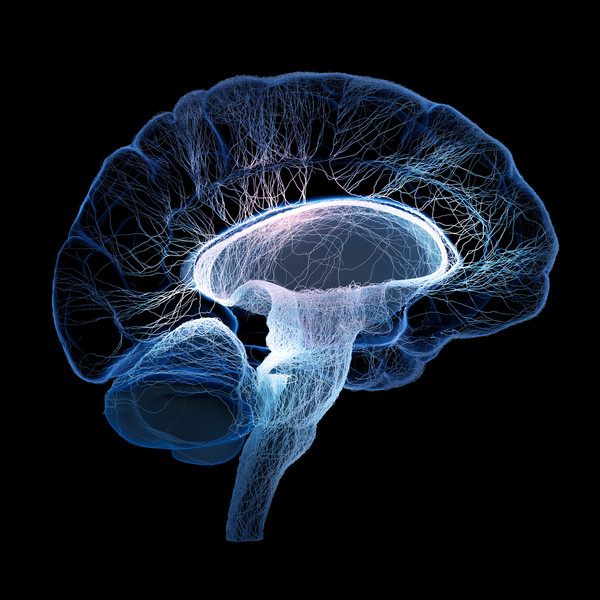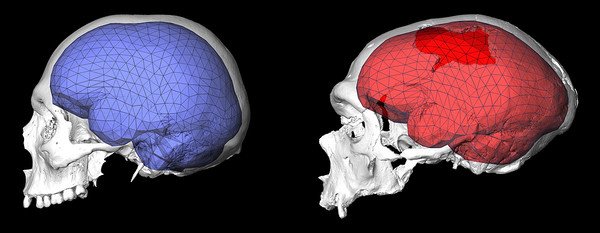
Homo sapiens lives on earth about 200,000 years. However, over the 200,000 years there has been no small change in the human brain and skull: the skull is rounded, the face becomes smaller, and the face shrinks further into the skull. We are very different from our ancestors 100,000 years ago. For the first time, scientists now pinpoint exactly when modern skulls appear.
On Wednesday, a team of researchers from the Max Planck Institute for Evolutionary Anthropology (Germany) published a paper stating that the unique features of the modern human brain and cranium are likely to have evolved 40,000 years ago.
Compared with the Homo ancestors, modern Homo sapiens cerebellum larger and more round - the cerebellum is located behind the brain, responsible for motor control, balance, but also has some memory, language features. Modern Homo sapiens is more convex and more round the top - the top leaves to help us determine the direction, make plans, focus. In addition, the lateral walls of the brain become more parallel, the frontal lobe becomes taller, and the occipital lobe (behind the head) becomes more rounded, not convex outwardly as before. Also, our faces became smaller and more inwards.

The left (blue) is the skull of modern humans and the right (red) is the skull of Neanderthal. Early Homo sapiens skull and Neanderthal, as long.
Credit: Simon Neubauer, Philipp Gunz, MPI EVA Leipzig
It is noteworthy that the Homo sapiens brain shape changes almost perfectly in time to coincide with the appearance of certain modern acts such as carving tools, making plans, developing self-awareness, developing language and even cave murals. In other words, the "human revolution" 40,000 years ago (sometimes referred to as the "Great Leap Forward") happened just as the cranium and brain shape changed.
The researchers point out that this does not happen between the moment and the end, but rather is a result of the gradual change of bit by bit over a few hundred thousand years. Although they are not sure about the exact time of the brain's qualitative change, they think it should happen between 3.5 and 100,000 years ago.
Researchers use 3D scanning technology to test the line, shape and characteristics of 20 Homo sapiens fossils. Fossils between 300,000 and 10,000 years. They came up with a groundbreaking theory that without a more mellow and graceful brain, humans may not be able to shape modern behavior - but the circular brain is only linked to modern behavior and not the latter.